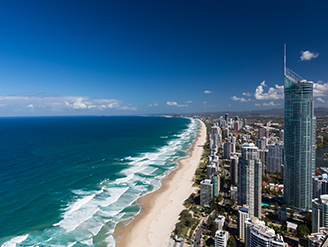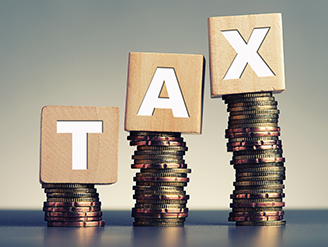On 12 May 2015 the Australian government announced major plans to make changes to Australia’s taxation laws. One of the major changes announced was the proposal to change residency rules for taxation purposes. This proposal had it have eventuated, would have seen all backpackers in Australia on working holidays considered non-residents for tax purposes. With the change to residency rules, backpackers, regardless of the length of their working holiday in Australia would have been required to pay a significantly higher rate of tax on the income they received.
The announcement which was part of the 2015 – 2016 Australian Federal Budget became known as the ‘backpacker tax’ and was due to come into operation as of 1 July 2016. The actual tax change would see backpackers on working holidays in Australia that had previously been considered residents for tax purposes now being classified as non-residents. This would have meant that backpackers on working holidays in Australia would not have been eligible for the tax free threshold and would also be required to pay tax at a rate of 32.5% for every dollar that they had earned.

The proposed changes were widely condemned by employers of backpackers mainly within the tourism and agricultural sectors. As the tourism and agricultural sectors employ the highest number of backpackers on working holidays in Australia, their relevant industry bodies became quite vocal in their advocacy for the backpacker tax to be rescinded. It would appear that the vocal advocacy by industry leaders has led to the government stepping back in regards to the proposed backpacker tax.
The federal Minister for Tourism, Mr. Richard Colbeck made a major announcement, in March 2016 advising that the Australian government would be undertaking a comprehensive review of the backpacker tax. The review is highlighted to look not only at the taxation component, but also undertake a review of superannuation benefits for backpackers on working holidays in Australia.
The Minister for Tourism has identified that the review will be a process involving the whole of government and will be inclusive of all relevant ministerial portfolios, such as Immigration, Agriculture, Regional Development and the Department of Prime Minister and Cabinet. It is the Minister’s intention that by incorporating a whole of government review of the controversial backpacker tax a revenue neutral proposal will be able to be identified.
Ministers from the relevant portfolios have already commenced discussions with industry leaders and also individuals from within the Agricultural and Tourism sectors.
At a recent meeting with key industry groups on 21 March 2016, the Federal Minister from Tourism heard from industry representatives. They shared their strong concerns about the application of a 32.5% tax rate for backpackers on working holidays in Australia as this would reduce the workforce that they can draw employees from. The biggest concern from those within the agricultural and tourism sectors was that backpackers would look to other countries with lower tax rates to travel to for their working holidays.

It is of no doubt that regional Australia faces a critical labour short fall and backpackers on working holidays in Australia are used to supplement this labour short fall. It is already predicted that by 2020 that the labour short fall in regional Australia will increase to around 123,000 employees. With the backpackers tax already expected to deter backpackers from commencing working holidays within Australia, it is understood that labour projections have identified that this shortfall will present dire consequences for the Australian economy.
Continue Reading
On 12 May 2015 the Australian government announced major plans to make changes to Australia’s taxation laws. One of the major changes announced was the proposal to change residency rules for taxation purposes. This proposal had it have eventuated, would have seen all backpackers in Australia on working holidays considered non-residents for tax purposes. With the change to residency rules, backpackers, regardless of the length of their working holiday in Australia would have been required to pay a significantly higher rate of tax on the income they received.
The announcement which was part of the 2015 – 2016 Australian Federal Budget became known as the ‘backpacker tax’ and was due to come into operation as of 1 July 2016. The actual tax change would see backpackers on working holidays in Australia that had previously been considered residents for tax purposes now being classified as non-residents. This would have meant that backpackers on working holidays in Australia would not have been eligible for the tax free threshold and would also be required to pay tax at a rate of 32.5% for every dollar that they had earned.

The proposed changes were widely condemned by employers of backpackers mainly within the tourism and agricultural sectors. As the tourism and agricultural sectors employ the highest number of backpackers on working holidays in Australia, their relevant industry bodies became quite vocal in their advocacy for the backpacker tax to be rescinded. It would appear that the vocal advocacy by industry leaders has led to the government stepping back in regards to the proposed backpacker tax.
The federal Minister for Tourism, Mr. Richard Colbeck made a major announcement, in March 2016 advising that the Australian government would be undertaking a comprehensive review of the backpacker tax. The review is highlighted to look not only at the taxation component, but also undertake a review of superannuation benefits for backpackers on working holidays in Australia.
The Minister for Tourism has identified that the review will be a process involving the whole of government and will be inclusive of all relevant ministerial portfolios, such as Immigration, Agriculture, Regional Development and the Department of Prime Minister and Cabinet. It is the Minister’s intention that by incorporating a whole of government review of the controversial backpacker tax a revenue neutral proposal will be able to be identified.
Ministers from the relevant portfolios have already commenced discussions with industry leaders and also individuals from within the Agricultural and Tourism sectors.
At a recent meeting with key industry groups on 21 March 2016, the Federal Minister from Tourism heard from industry representatives. They shared their strong concerns about the application of a 32.5% tax rate for backpackers on working holidays in Australia as this would reduce the workforce that they can draw employees from. The biggest concern from those within the agricultural and tourism sectors was that backpackers would look to other countries with lower tax rates to travel to for their working holidays.

It is of no doubt that regional Australia faces a critical labour short fall and backpackers on working holidays in Australia are used to supplement this labour short fall. It is already predicted that by 2020 that the labour short fall in regional Australia will increase to around 123,000 employees. With the backpackers tax already expected to deter backpackers from commencing working holidays within Australia, it is understood that labour projections have identified that this shortfall will present dire consequences for the Australian economy.
The National Farmers’ Federation has been one of the most vocal industry groups due to need that the agricultural industry has for temporary workers that are made up of backpackers on working holidays in Australia. The National Farmers’ Federation presented the government with a petition signed by over 30,000 primary producers, small business operators and backpackers calling for the backpacker tax to be rescinded. The National Farmer’ Association is calling on the Federal government to focus on a sustainable agricultural workforce that encourages backpackers on working holidays to work in regional Australia.
Research undertaken by the National Farmers’ Federation has found that during the 2014 – 2015 financial year over 38,000 backpackers on working holidays were employed by farms across Australia. The research also identified that backpackers on working holidays in regional holidays in regional each spent around $15,000 within the local economy, a significant boost for economies in regional towns.
The National Farmers’ Association President, Mr. Brent Finlay was able to succinctly articulate industry concerns when he said it was, “fool’s gold to assume a net revenue gain without taking these vital factors into account. Australian farmers are looking to build upon the significant growth potential of our global markets, and we can’t do it without our workforce.” Mr. Finlay’s response was in direct reference to the predicted effects of a backpackers tax. Mr Finlay further went on to identify that, “We know about 40,000 backpackers work in agriculture for a few months each year, the majority in horticulture at seasonal peak.”
Comments made by Federal government ministers would suggest that they are listening to industry leaders and also regional communities. Assistant Agricultural and Water Resources Minister, Ms. Anne Ruston was adamant in her comments that the current review into the backpacker tax would look into policies that would ensure Australia does not loose the market share of the backpackers.
The Assistant Agricultural and Water Resources Minister, Ms. Anne Ruston went on to state, “The clear aim is to make sure we have a balanced and equitable approach to the tax status for workers here on visas – we do not want to risk a slide into black market employment in agriculture and tourism.”
Comments made by the Minister for Tourism were however a little more pessimistic. It is the position of the Minister for Tourism that the government’s proposal for a backpacker tax prevented taxation advantages for certain workers on Australian Working Holiday Visa’s. It would appear that thee position of Minister for Tourism stems from the state of the current Australian budget and this can be correlated with his state where he went on to say, “We don’t want to do that and so it’s important that we have another look, it will need to be revenue neutral given the current budget status”.
While the tourism and agricultural industries have welcomed the review being undertaken by the Federal government into the controversial backpackers tax it still remains that the Federal government has not ruled out taxing backpackers on working holidays in Australia at a higher rate. Should the government go ahead with its proposed tax changes then the ramifications on regional Australia could be devastating. It would seem that the Federal government believes that by taxing backpackers on working holidays in Australia at a higher rate they will be better able to manage the Australian budget.
What the Federal government does not seem to realise is that by implementing the backpacker tax, many people looking at coming to Australia for a working holiday will be deterred. Australian Bureau of Statistics studies have already shown that there is a decline in backpackers coming to Australia on working holidays. By instigating taxation deterrents for backpackers that would otherwise come to Australia would seem counter productive to the intentions of the Federal government. With a smaller backpacking work pool the less tax the Federal government is likely to receive.
The proposed backpacker tax is like a double edged sword for the Federal government. Should the government implement the backpacker tax then there will be higher revenue per taxed dollar, but with less backpackers on working holidays in Australia there will be limited taxable dollars for the government to obtain revenue from. Backpackers on working holidays in Australia provide so many benefits not only to the Australian economy but also communities within regional Australia.
It would seem that the sensible solution would be for the Federal government to work with the industry sectors to find a tailored solution for all parties. At face value it appears that this is what the Federal government is seeking to do. However, the comments made by the Minister for Tourism indicate that increased tax revenue is the primary objective of the Federal government. Australia’s Prime Minister, Mr. Malcolm Turnbull has been relatively quiet on the subject, which may mean he wishes to be at arms length if the review recommendations are contrary to the expectations of the key industry bodies affected.
Industry leaders and affected regional locations throughout Australia however, appear to be quite steadfast in their position that the proposed backpacker tax should be rescinded. After all, if backpackers are dissuaded from coming to Australia on working holidays because of the proposed tax implications there will be ramifications not only on local economies, but also the ability for the relevant industries overcome the labour shortages they face. Backpackers who are already on working holidays in Australia are also campaigning against the introduction of the backpacker tax; they are the ones who will face the brunt of the rising tax.

It is hoped that for the benefit of relevant industry sectors, regional Australia and also the backpackers themselves, that the review being undertaken by the Federal government is more than just a rhetorical review. It can’t be underestimated that the decision on the backpacker tax has already been made by the Federal government, however, the discourse being entered into by some government Ministers would suggest that the review is being taken seriously by the Federal government.
The Minister for Tourism, Mr. Colbeck has indicated that at the conclusion of the review into the proposed backpackers tax, he will present a proposal the Federal Treasurer to present to the Australian cabinet. There has been no timeframe given by the Federal government on when the review is expected to be finalised and unfortunately this leaves the relevant industry sectors, regional communities and backpackers in a state of limbo as to how things will unfold.
The proposed backpackers tax would appear to be a cash grab by the Federal government to raise taxation revenue. However, in doing so there will undoubtedly be many more ramifications on the Australian economy than there will be positives for the Australian economy. Backpackers on working holidays in Australia provide a vital source of labour to fill jobs where there is a severe labour shortage. These labour shortages are in industries such as tourism and agriculture which are essentially the driving force of the Australian economy.
Will the proposed backpacker tax go ahead – only time will tell. For backpackers considering a working holiday in Australia they should seek the advice of a taxation specialist to see how the implementation of the backpacker tax will affect them should it be introduced. The taxation specialist will also be able to provide backpackers with advice on legal tax minimisation strategies through allowable tax deductions. Backpackers coming to Australia for a working holiday armed with the advice of a taxation specialist will be financially better off than those who fail to gain specialised advice.





































